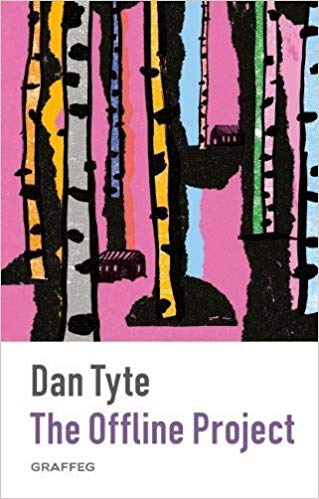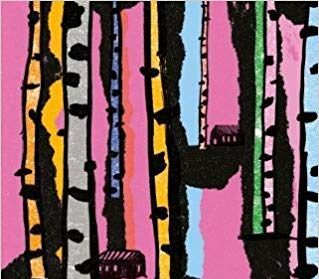
Carolyn Percy reviews the satirical novel, The Offline Project, by Dan Tyte which follows Gerard, a creative working on a screenplay pitch.
A lot of us worry that we may be spending too much time online, that we’re relying too much on social media for external validation, and occasionally wonder if maybe spending more time offline would make us happier. But, in a world where the internet has the fabric of our every day lives firmly in its teeth, just how feasible is a completely offline existence? Like many twenty-somethings today, Gerard Kane’s identity is defined by his internet addiction. But after his relationship with girlfriend Del implodes after a death in the family, a nervous breakdown takes him from Wales into the bosom of a community of former internet addicts in the Danish woodland, known as ‘The Offline Project’, where he can pursue the ideal of life completely off the grid. But is it all too good to be true?
The tone and sense of humour are established immediately, as we’re introduced to our protagonist, Gerard, during a family Christmas full of recognisable awkwardness – boring TV, gifts that aren’t quite what you’d hoped for, too much food and four or five different conversations all going on at the same time – that makes Gerard think of “Einstein’s definition of madness” and even the dog’s in “emotional distress.”
Tyte’s writing is divided into two sections: “Online” and “Offline.” The first section, “Online”, builds up a portrait of Gerard, his life and those around him. We all know a Gerard, in fact; some of us probably are Gerard. An aspiring creative, working on a pitch for a screenplay, whilst working as a barman for a company that makes and serves craft and artisan beers and supplementing his income through some internet entrepreneurism via Air BnB. But progress is slow, as he spends most of his time procrastinating by carefully curating his online profile – what photo or pithy comment will net him more followers on Twitter, what will have the best chance of going viral etc. This is mirrored through the structure, as the short chapters constantly dip in and out of other formats – lists, emails, phone conversations, Gerard’s film pitch – mimicking the almost ADHD like nature of the internet in its variety and constantly changing content. One of the most important relationships in this first section is Gerard’s relationship with his girlfriend Del. Meeting through the internet, it’s painfully obvious to all but them, at first, that they really don’t have much in common (one chapter, for instance, is a list of “17 Excellent moments” from Del and Gerard’s relationship, #11 is where he and Del “had been sat on the leather Chesterfield in Gerard’s front room for two and a half hours. During that time, there had been less conversation than in the movie The Artist.”) Yet it’s still sad to watch their fledgeling relationship inevitably fizzle out, a scenario a lot of readers will undoubtedly be all too familiar with.
The second section, “Offline”, details Gerard’s time in the Offline Project. This section is told through letters, both because there is no internet access and to show that, without access to instant communication, Gerard slowly regains the tools needed for deep thinking and reflection. An ironic side effect of this, however, is that, because events are all reported after the fact, it can feel slightly less real than the first half. Sure enough, there are some ulterior motives behind the Offline Project, which, it turns out, is not so divorced from the world of the internet and social media after all, and is less about genuinely helping people anymore like watching lab mice in the midst of a giant experiment. Some thriller-esque moments come in at the eleventh hour and a rather bizarre ending throws all the previous events into question.
Although its two halves come across as somewhat uneven, Dan Tyte’s, The Offline Project is still a wonderfully satirical and incisive look at the ills of our modern online culture. So, is it possible, or even preferable, to have a completely offline existence? As with a lot of questions, the answer is likely to be different for different people. Tyte’s novel may or may not be yours.
The Offline Project is available now from Graffeg.
Carolyn Percy is an avid contributor to Wales Arts Review.












